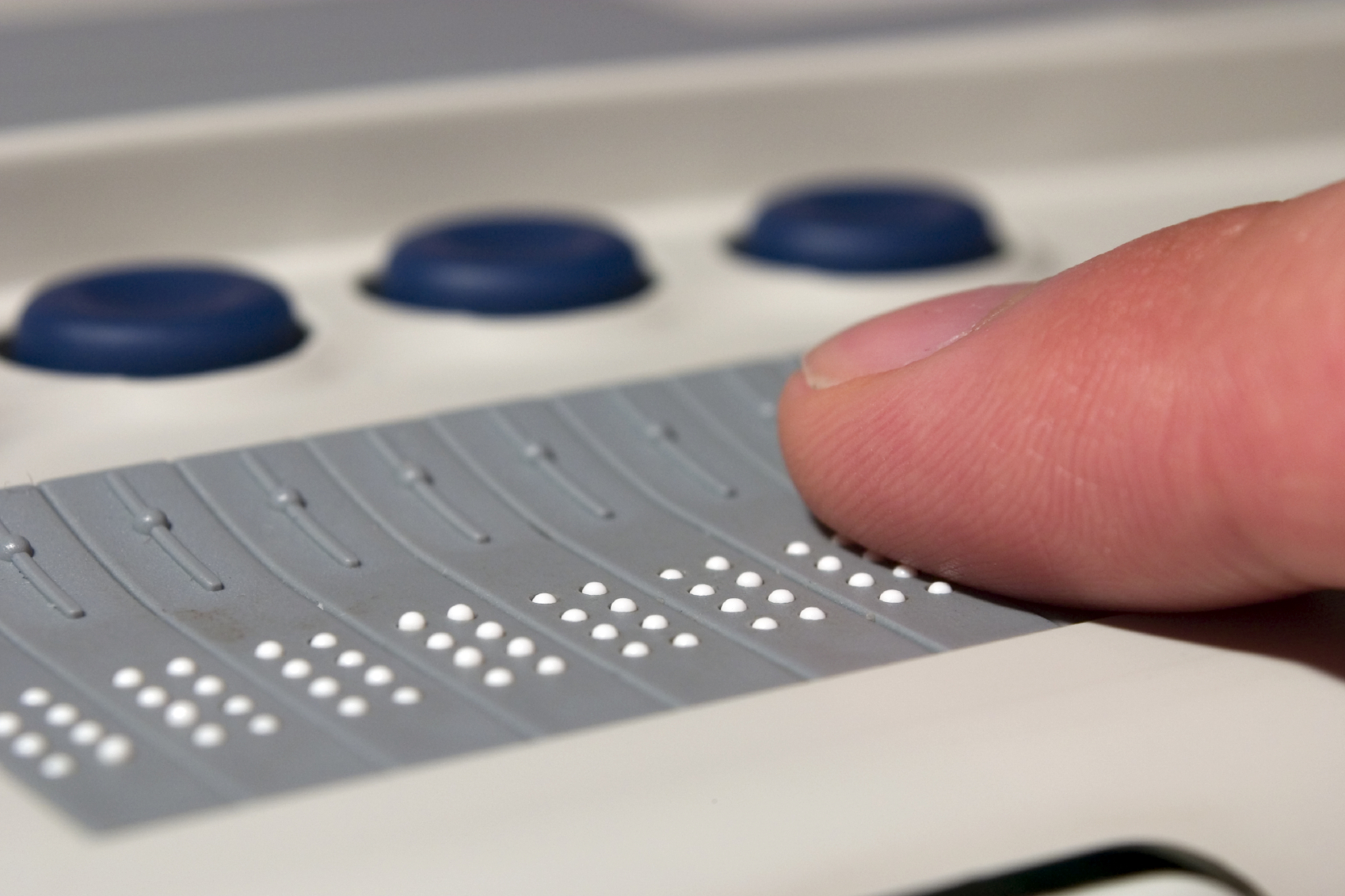Why is so much of the internet still inaccessible to disabled people?
Twenty-five years after the Americans with Disabilities Act, the disabled community still can't get online

A free daily email with the biggest news stories of the day – and the best features from TheWeek.com
You are now subscribed
Your newsletter sign-up was successful
Twenty-five years ago, George H.W. Bush signed the Americans with Disabilities Act (ADA) into law. It was a landmark piece of civil rights legislation for the disabled community, mandating equal treatment and providing for a wide range of protections. But it contained one big loophole: the internet.
Much of the physical realm is more accommodating today than it was in 1990. There are fewer inaccessible stairs or swimming pools. More television shows are required to be captioned. The blind are offered alternative ways to fill out ballots. But the disabled community continues to struggle online.
Just take the experience of deaf actress Marlee Matlin, who was surprised to find in 2008 that most networks were posting their videos online without closed captioning — even when it was mandated for broadcast. She began pushing for it online, too — but it took six years for the FCC to begin cracking down and requiring networks to provide quality captioned content. Even now, violations of the rules still are only investigated after viewer complaints.
The Week
Escape your echo chamber. Get the facts behind the news, plus analysis from multiple perspectives.

Sign up for The Week's Free Newsletters
From our morning news briefing to a weekly Good News Newsletter, get the best of The Week delivered directly to your inbox.
From our morning news briefing to a weekly Good News Newsletter, get the best of The Week delivered directly to your inbox.
And Matlin's is perhaps only the most obvious example of the web's failing. Visually impaired and blind users, for instance, struggle with issues like untagged images and low contrast. Other users experience seizures and migraines in response to certain types of content, which often loads and plays automatically and without warning on the web, including on major websites. And those with limited fine motor skills have difficulty navigating sites with small buttons or content packed tightly together.
This is a huge problem, not just because the disabled community deserves the same accessibility as everyone else, but because they otherwise have so much to gain by the web's lack of physical barriers. Take for, instance, distance education, an especially valuable tool for disabled people who have difficulty attending classes in person. Or the power to build online networks, which makes it easier for communities to develop among people who have trouble getting out or who have limitations in their ability to communicate.
And that's what so galling about the inaccessibility of the internet: the wasted promise.
Disabled people need to be active participants on the web now more than ever. Cuts to social services, disability benefits, and other government supports have hit disabled communities especially hard, and the internet could be a powerful tool for self-advocacy.
A free daily email with the biggest news stories of the day – and the best features from TheWeek.com
Nor are the excuses particularly relevant. The commercial internet really didn't start to thrive until after the ADA passed, which could have created a golden opportunity for developing an accessible web from the ground up. Instead, the internet was almost immediately inaccessible, except on government websites, which are required to meet mandates spelled out in Section 508 standards.
These same standards provide a rule of thumb that could be used by any Web developer, yet they're rarely consulted — and few rely on the services of organizations that offer tools and consulting to help people build accessible websites. The Web Accessibility Initiative, for example, provides comprehensive guidelines to help people build visually appealing, functional, accessible websites at costs comparable to those of inaccessible sites.
As the internet ogles listicles of "inspirational" disabled people, members of the very community they're discussing can't participate in those conversations. It didn't have to be this way.
The internet represents one of our greatest post-ADA social failings, as a communications medium that had the potential to build accessibility into its very backbone, but didn't. As the web becomes even more of a way of life in the next 25 years, the disability community will likely have to continue to fight for basic online accommodations, a telling testimony to their status in society.
s.e. smith is a writer, editor, and agitator from Northern California. smith works as the deputy opinion editor at The Daily Dot and the social justice editor at xoJane, with writing credits in publications like The Guardian, Bitch Magazine, AlterNet, Nerve, and Time.
-
 Local elections 2026: where are they and who is expected to win?
Local elections 2026: where are they and who is expected to win?The Explainer Labour is braced for heavy losses and U-turn on postponing some council elections hasn’t helped the party’s prospects
-
 6 of the world’s most accessible destinations
6 of the world’s most accessible destinationsThe Week Recommends Experience all of Berlin, Singapore and Sydney
-
 How the FCC’s ‘equal time’ rule works
How the FCC’s ‘equal time’ rule worksIn the Spotlight The law is at the heart of the Colbert-CBS conflict